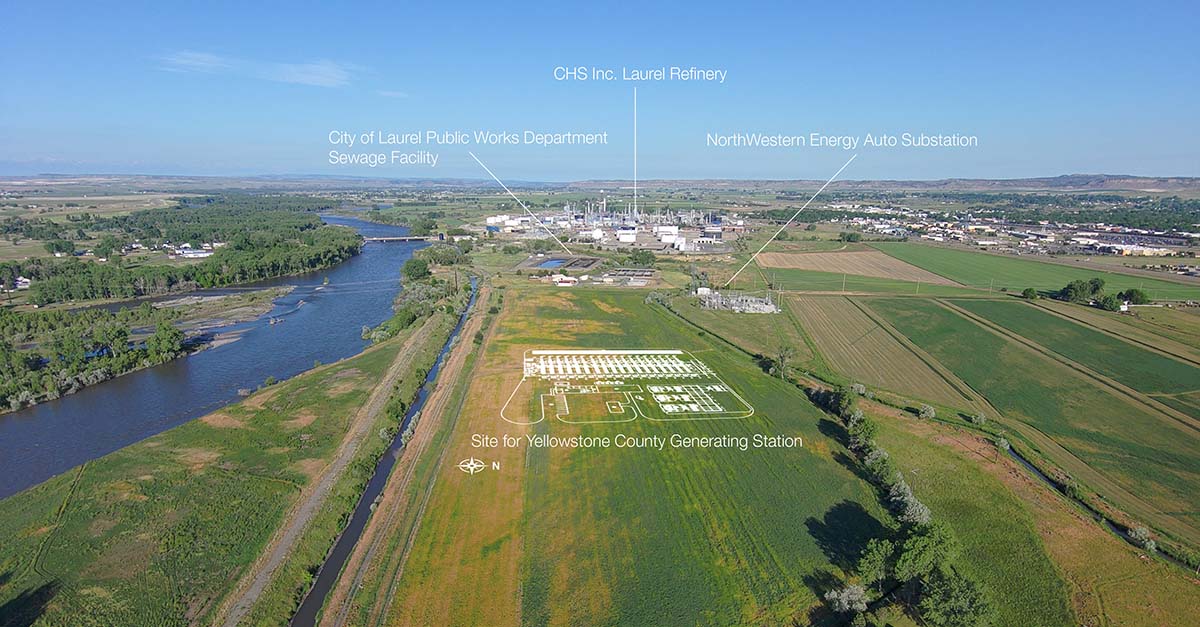
Montana Supreme Court Hears Arguments on NorthWestern Energy’s Power Plant Permit
On Wednesday, the Montana Supreme Court heard oral arguments regarding the permit for NorthWestern Energy’s planned power plant near Laurel. The case centers on whether the Montana Department of Environmental Quality did sufficient environmental analysis when approving an air quality permit for the Yellowstone County Generation Station, a 175-megawatt natural gas-fired plant.
The Arguments
The Supreme Court heard arguments from both sides – DEQ and NorthWestern Energy defended the permit granting, while environmental groups challenged the decision. The environmental groups argue that DEQ did not take the required “hard look” at issues like the plant’s greenhouse gas emissions and the impact of its lighting and noise on nearby residents.
Shannon Heim, NorthWestern’s general counsel and vice president of federal government affairs, stated that greenhouse gases are not regulated like other pollutants, so DEQ didn’t have authority to regulate them. Therefore, the permit can’t be vacated simply because the department didn’t review their impacts. Meanwhile, Jenny Harbine, an attorney for Earthjustice, represented the plaintiffs – Montana Environmental Information Center and the Sierra Club. She argued that DEQ is required to look more broadly at the possible impacts of a project and that the emissions from the Laurel plant had to be considered in the context of the potential effects of climate change in Montana.
The Pending Lawsuits
Both sides in this case noted that the issues raised here overlap with those in Held v. Montana, a prominent climate change lawsuit that is now before the Montana Supreme Court. In Held, a state district judge ruled that a law preventing regulators from considering greenhouse gas emissions in environmental reviews was unconstitutional. The 2023 Montana Legislature passed that law in response to the judge’s decision that vacated the permit for the Laurel plant.
Jeremiah Langston, an attorney for DEQ, said the department had been planning to update its review in light of that law when it was blocked. He encouraged the Supreme Court to make its decision in Held and this case at the same time or somehow tie them together. The Supreme Court generally takes no immediate action after an oral argument, and that was again the case Wednesday.
Environmental Concerns
After the hearing, the conservation group Northern Plains Resource Council held a rally at the State Capitol, saying the possible impacts of the Laurel plant’s emissions need to be taken into account. Those in attendance chanted “Clean and healthful; it’s our right!” – referring to the Montana Constitution’s guarantee of a “clean and healthful environment.”
Both environmental and neighboring residents have concerns about the potential health effects of the plant’s emissions. MTN reported that Mary Fitzpatrick, a member of Northern Plains, said that it would be hard to manage or change what is not measured, hence the need for a “hard look” analysis of the plant’s greenhouse gas emissions.
The Struggle for Reliable Power
John Hines, NorthWestern’s vice president of supply and Montana government affairs, said that the company sees the capacity of the Yellowstone County Generating Station as critical to ensure their customers’ power supply when other resources aren’t available. While renewables are significant for their portfolio, he said that to keep up with increasing energy demands during extreme weather, on-demand generation facilities like the YCGS are essential.
He adds that it is unfair for opponents to accuse the company of building the plant for profit as they could make more profits by building the same capacity in renewable projects. Should the YCGS have been in operation during the January cold snap, it could have saved customers about $12 million over six days. Hines confirms that the facility could be fully operational within the next month and a half, and they have taken steps to address some of the concerns neighbors raised about lighting and noise.
Originally Post From https://www.kpax.com/news/montana-supreme-court-hears-arguments-on-permit-for-laurel-power-plant
Read more about this topic at
How does permitting for clean energy infrastructure work?
PERMITTING PROCESS FOR POWER PLANTS

